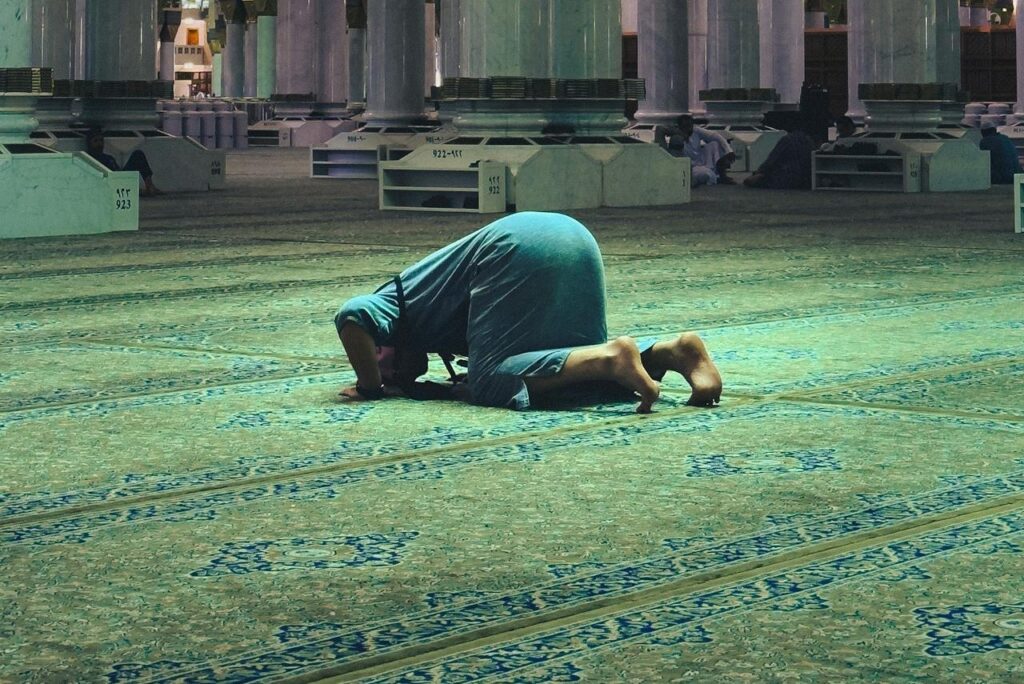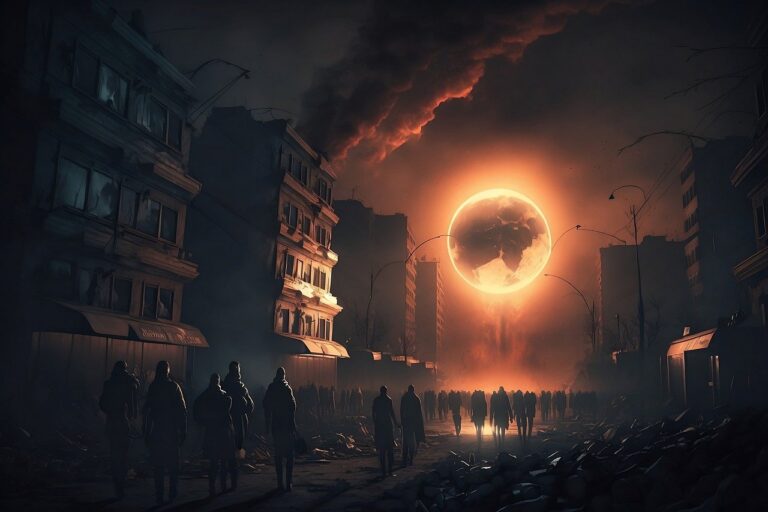Hell in Islam: A Reminder of Accountability and Divine Justice
In Islam, Hell, or Jahannam, is a central concept that represents divine justice and serves as a reminder of the consequences of one’s actions in this world. It is a place of severe punishment on the Day of Judgement for those who reject faith, commit sins, and fail to repent. There is a vivid description of Hell in Islam, highlighting its intensity and the varying levels of punishment it contains. Understanding the nature of Hell as described in Islam can deepen our awareness of accountability and inspire us to stay steadfast on the path of righteousness.
This blog post explores the question, “Is there a Hell in Islam?” by providing an in-depth explanation and detailing its seven levels as described in the Quran.
What is Hell in Islam?
Hel in Islam, is a realm created by Allah to punish those who have strayed from His guidance. It is described as a place of intense suffering, where both physical and spiritual pain are inflicted. The Quran mentions that Hell has gates, levels, and varying degrees of punishment, corresponding to the severity of an individual’s sins.
Hell is not only a place of retribution but also a reflection of divine justice, where every action is accounted for, and no wrongdoing goes unnoticed.

The Purpose of Hell in Islam
The concept of Hell in Islamic theology is not just about fear but also serves several significant purposes:
- Accountability: Hell emphasizes the importance of accountability for every action, thought, and decision.
- Justice: It reflects Allah’s justice, ensuring that those who commit grave injustices and fail to repent face consequences.
- Guidance: The descriptions of Hell serve as a warning to steer people away from sin and encourage them to strive for righteousness and repentance.
The Types of Hell in Islam (with Quranic References)
Here are the seven levels of Hell as famous for 7 hells in Islam:
- Jahannam
The general term for Hell, Jahannam, is frequently mentioned in the Quran as a place of blazing fire prepared for disbelievers and sinners. It is described as having unbearable heat and suffering. Quran says:
هَـٰذِهِۦ جَهَنَّمُ ٱلَّتِى كُنتُمْ تُوعَدُونَ – ٱصْلَوْهَا ٱلْيَوْمَ بِمَا كُنتُمْ تَكْفُرُونَ
This is the Hell you were warned of. Burn in it Today for your disbelief (Surah Ya Sin:63-64)
- Laza
Laza is a blazing fire that peels the skin of those who turned away from Allah and rejected His signs. Quran describes:
كَلَّآ ۖ إِنَّهَا لَظَىٰ – نَزَّاعَةًۭ لِّلشَّوَىٰ – تَدْعُوا۟ مَنْ أَدْبَرَ وَتَوَلَّىٰ
“By no means! Verily, it will be the Fire of Laza (the blazing flame). It will burn the skin of the head. It will call forth those who have rejected Allah and distanced themselves from the truth.” (Surah Al-Ma’arij:15-17)
- Al-Hutama
Known as “The Crusher,” Al-Hutama is reserved for those who are consumed by greed and materialism. It is described as a fire penetrating the hearts, crushing the sinner entirely. Allah says in the Quran:
وَمَآ أَدْرَىٰكَ مَا ٱلْحُطَمَةُ – نَارُ ٱللَّهِ ٱلْمُوقَدَةُ – ٱلَّتِى تَطَّلِعُ عَلَى ٱلْأَفْـِٔدَةِ
“And what can make you know what is [the] Crusher? It is the eternal blaze of Allah, ever-fed, that ascends towards the hearts.” (Surah Al-Humazah:5-7)
- Saqar
Saqar is a scorching fire mentioned in the Quran as a punishment for those who neglect their prayers and ignore the needy. Its heat is so intense that it leaves no trace unburned. It is mentioned in Quran:
مَا سَلَكَكُمْ فِى سَقَرَ – قَالُوا۟ لَمْ نَكُ مِنَ ٱلْمُصَلِّينَ – وَلَمْ نَكُ نُطْعِمُ ٱلْمِسْكِينَ
“What brought you to Saqar? They will declare, We were not among those who offered prayers, nor did we provide for the needy.” (Quran 74:42-44)
- Al-Jaheem
A blazing inferno, Al-Jaheem is described in the Quran as consuming all within its reach. It is for those who indulged in sinful actions and defied Allah’s commands: “And the companions of the left—what are the companions of the left? They will be surrounded by intense flames and boiling water.” (Quran 56:41-42)
- Sa’ir
Sa’ir, meaning “blaze,” is a Hellfire that rises high and engulfs its inhabitants. It is reserved for those who defied Allah’s guidance and committed major sins. Allah says in the Quran: “Certainly, those who reject Our verses will be thrust into a Fire. Whenever their skins are scorched, We will provide them with new ones so they can taste the torment..” (Quran 4: 55-56) - Al-Hawiyah
Known as “The Abyss” or “The Pit,” Al-Hawiyah is the lowest level of Hell, reserved for hypocrites and those who knowingly committed the gravest sins. It is described as a deep pit of unimaginable suffering. Quran says:
وَأَمَّا مَنْ خَفَّتْ مَوَٰزِينُهُۥ – فَأُمُّهُۥ هَاوِيَةٌۭ – وَمَآ أَدْرَىٰكَ مَا هِيَهْ – نَارٌ حَامِيَةٌۢ
“But as for him whose scales are light, his refuge will be an abyss. And what can make you know what that is? It is a blaze, extremely scorching.” (Surah Al-Qariah:8-11)

Hope and Redemption
While the descriptions of Hell in Islam are severe. Repentance (Tawbah), sincere faith, and good deeds are ways to seek Allah’s forgiveness and avoid the punishment of Hell. The Quran reminds us that Allah’s mercy encompasses all things and that He is always ready to forgive those who turn back to Him.
Conclusion
Hell in Islam is a stark reminder of the consequences of our actions and the justice of Allah. Its descriptions are not meant to instill despair but to inspire reflection, repentance, and a commitment to live righteously. By understanding the different types of Hell and their purpose, we can gain a deeper appreciation for the importance of following divine guidance and seeking Allah’s mercy in all aspects of life.
Let the knowledge of Jahannam inspire us to strive for goodness, avoid sin, and seek Allah’s pleasure. Dedicate daily time to learn and read the Quran, as it is a powerful guide to keep us on the path of righteousness and away from wrongdoing.







